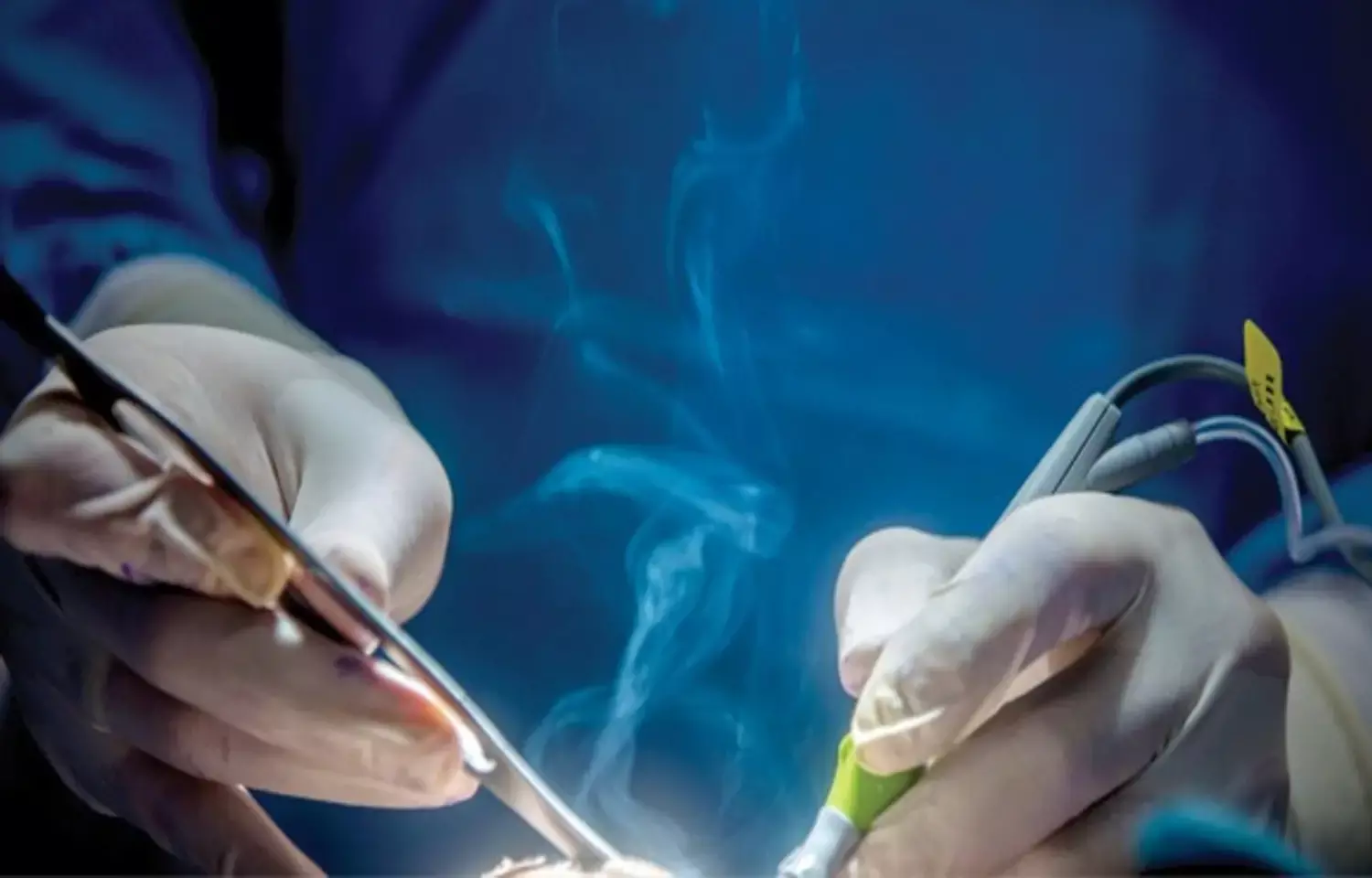- Home
- Medical news & Guidelines
- Anesthesiology
- Cardiology and CTVS
- Critical Care
- Dentistry
- Dermatology
- Diabetes and Endocrinology
- ENT
- Gastroenterology
- Medicine
- Nephrology
- Neurology
- Obstretics-Gynaecology
- Oncology
- Ophthalmology
- Orthopaedics
- Pediatrics-Neonatology
- Psychiatry
- Pulmonology
- Radiology
- Surgery
- Urology
- Laboratory Medicine
- Diet
- Nursing
- Paramedical
- Physiotherapy
- Health news
- Fact Check
- Bone Health Fact Check
- Brain Health Fact Check
- Cancer Related Fact Check
- Child Care Fact Check
- Dental and oral health fact check
- Diabetes and metabolic health fact check
- Diet and Nutrition Fact Check
- Eye and ENT Care Fact Check
- Fitness fact check
- Gut health fact check
- Heart health fact check
- Kidney health fact check
- Medical education fact check
- Men's health fact check
- Respiratory fact check
- Skin and hair care fact check
- Vaccine and Immunization fact check
- Women's health fact check
- AYUSH
- State News
- Andaman and Nicobar Islands
- Andhra Pradesh
- Arunachal Pradesh
- Assam
- Bihar
- Chandigarh
- Chattisgarh
- Dadra and Nagar Haveli
- Daman and Diu
- Delhi
- Goa
- Gujarat
- Haryana
- Himachal Pradesh
- Jammu & Kashmir
- Jharkhand
- Karnataka
- Kerala
- Ladakh
- Lakshadweep
- Madhya Pradesh
- Maharashtra
- Manipur
- Meghalaya
- Mizoram
- Nagaland
- Odisha
- Puducherry
- Punjab
- Rajasthan
- Sikkim
- Tamil Nadu
- Telangana
- Tripura
- Uttar Pradesh
- Uttrakhand
- West Bengal
- Medical Education
- Industry
Females may need additional Treatments Following Surgery for Intermittent Claudication

Intermittent claudication (IC) is a commonly treated vascular condition. Gender of patient has been shown to influence outcomes of interventions for other vascular disorders; however, whether outcomes of interventions for IC vary by sex is unclear. Researchers sought to assess the association of patient gender with outcomes after IC interventions.
A new study from researchers at Boston University School of Medicine (BUSM) and Boston Medical Center (BMC) has found that female gender is associated with more re-interventions after surgical treatment for IC. Additionally, guideline-directed medical therapy, including aspirin and statin use, was used less frequently among female compared with male patients in both the pre-operative and post-operative settings.
"Based on these findings, we recommend that vascular interventionists treating female patients with intermittent claudication increase their efforts to maximize medical therapy and discuss with their patients the differences in intervention durability based on patient sex," explained first author Scott R. Levin, MD MSc, clinical instructor at BUSM.
The researchers conducted a retrospective analysis of patients undergoing vascular interventions for IC in more than 800 academic and nonacademic centers in North America from 2010-20. Among the 64,752 peripheral vascular interventions (PVI), 38 percent were performed in female patients.
Out of the 9,314 infrainguinal bypasses (IIB) and 3,227 suprainguinal bypasses (SIB), 30 and 37 percent were performed in female patients, respectively. Female compared with male sex was associated with increased re-interventions after PVI, IIB and SIB at one year.
Additionally, they found that regardless of patient sex, one-year amputation rates were higher than expected compared to medical management (smoking cessation, aspirin and statin therapy, a walking program) alone prompting Levin to recommend that surgeons attempt an adequate period of medical therapy prior to offering invasive interventions for IC.
According to the researchers, increasing medical options, particularly for an elective vascular procedure, is essential and an area for immediate improvement. "However, this is only one factor that may mitigate the disparity in re-intervention rates by patient sex.
Future prospective analysis is warranted to assess the reasons for the type of intervention offered, as well as for suboptimal medical therapy, treatment failures, and need for re-intervention among female patients," said Levin who also is a resident physician in general surgery at BMC.
Reference;
Scott R. Levin, Alik Farber, Elizabeth G. King, Caitlin W. Hicks, Denis Rybin, Jeffrey J. Siracuse, Published:July 06, 2022DOI:
https://doi.org/10.1016/j.avsg.2022.05.036
Dr Kamal Kant Kohli-MBBS, DTCD- a chest specialist with more than 30 years of practice and a flair for writing clinical articles, Dr Kamal Kant Kohli joined Medical Dialogues as a Chief Editor of Medical News. Besides writing articles, as an editor, he proofreads and verifies all the medical content published on Medical Dialogues including those coming from journals, studies,medical conferences,guidelines etc. Email: drkohli@medicaldialogues.in. Contact no. 011-43720751


